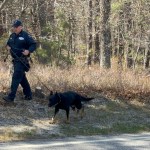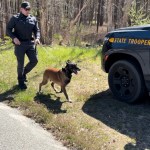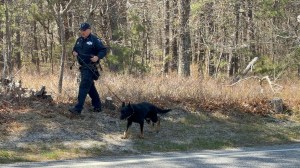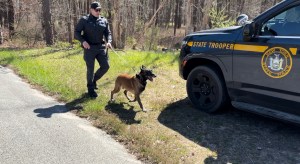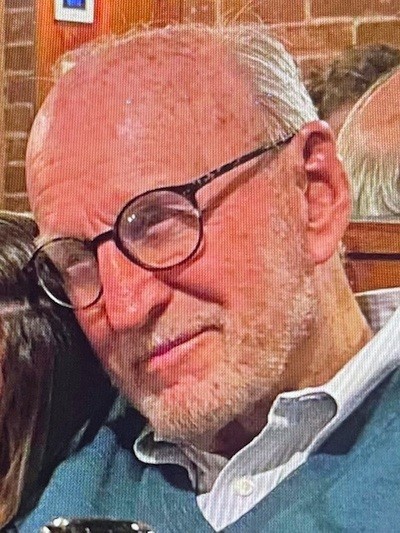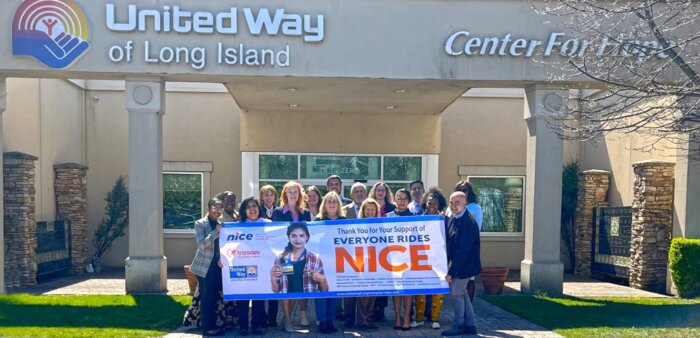Corporal Christopher Levi, an Army Ranger, is lucky to have made it back to Long Island alive.
The 29-year-old Holbrook man remembers clearly the day in 2008 his legs were blown off, each limb landing on opposite sides of his Humvee when it rolled over an improvised explosive device in Iraq, mangling his right arm. His fatigues ran red with blood. His rifle was destroyed.
After a lengthy stay at Walter Reed Army Medical Center in Washington, D.C., Levi now lives at home, where he continues his grueling rehabilitation, learning to walk again with prosthetics. Yet despite losing his legs, Levi seemingly evokes Revolutionary war hero Nathan Hale, who famously said his only regret was that he had but one life to give for his country.
“I was a little bit more upset that I wouldn’t be able to rejoin my brothers in this deployment,” Levi told CNN.
About 30 Long Islanders were among the estimated 4,500 Americans and more than 100,000 Iraqis who lost their lives during Operation Iraqi Freedom, which began nine years ago this week, March 19, 2003, with a bombing attack then-President George W. Bush called “Shock and Awe.”

That small figure neither includes those from LI who died while recovering stateside from injuries suffered in Iraq nor those who took their own lives while struggling with post-traumatic stress disorder (PTSD). Far outnumbering those lost are the at least 5,000 Iraq war veterans like Levi, who returned to LI. He is getting treatment, but an untold number of Iraq war veterans are still reluctant to seek help, for whatever reason. Meanwhile, the veterans and families of those lost are trying to ensure that the sacrifices our troops made are not forgotten as our country moves on.
The U.S. withdrawal from Iraq on Dec. 18 inspires mixed feelings for Doreen Kenny of Bay Shore, mother of Army Spc. Jacob Fletcher, who parachuted into northern Iraq in the first week of the war. He became the third soldier from LI to die there when he was killed at age 28 by a roadside bomb Nov. 13, 2003.
“The impact when they took the American flag down in Bagdad at the closing of the war, it was so bittersweet,” Kenny says through tears. “Sweet in the sense that most of our troops were coming home and I was ever so grateful. And then it became the war that was. The war that I lost my son in.”
She copes by continuing her mission as head of nonprofit Jacob’s Light Foundation, which has sent a half million pounds of care packages to soldiers on the front lines over the years. The group is still sending packages to those serving in Afghanistan.
Jacob’s Light is one of many places where the legacy of those who paid with their lives in Iraq can be found across LI. Streets, bridges, ball fields, scholarships, nonprofits and an array of buildings from Montauk to Manhasset bear the names of fallen hometown heroes. Northport’s John W. Engeman Theater is named after a chief warrant officer from East Northport who died in Iraq in 2006.
One of the rare few to have a New York State law named in their honor is Army Spc. Thomas Wilwerth, a 21-year-old Mastic native who died near Balad, Iraq, on Feb. 22, 2006 when his tank was hit by an IED.
“For the family of Specialist Wilwerth, they know that [he] is looking after any future Gold Star Families in New York to allow them to bury their son or daughter with the peace and respect that a fallen service member deserves,” says state Sen. Lee Zeldin (R-Seaford), who authored the Specialist Thomas Wilwerth Military Dignity Act. The term “Gold Star” refers to families who’ve lost loved ones in military service. “It gives them even more reason to believe that his sacrifice wasn’t for naught,” the senator says.
The Wilwerth law prohibits protests within 2,500 feet of military services, funerals and processions—such as the anti-gay rights protest organized by Westboro Baptist Church, a fringe evangelical group, who have appeared at soldiers’ funerals waving “God hates fags” signs.
Zeldin, a captain in the U.S. Army Reserves, served in Iraq in the summer of 2006. He was fortunate enough to come home in one piece. But he cannot forget watching a friend of his, a platoon leader, being blinded by shrapnel while trying to help one of his men under enemy fire.
“It greatly impacted me, seeing how quickly someone who had an entire life before him—an entire life still yet to live—and it was drastically changed in a moment,” Zeldin says.
The experience has changed the lives of those who returned home without any visible wounds, too.















